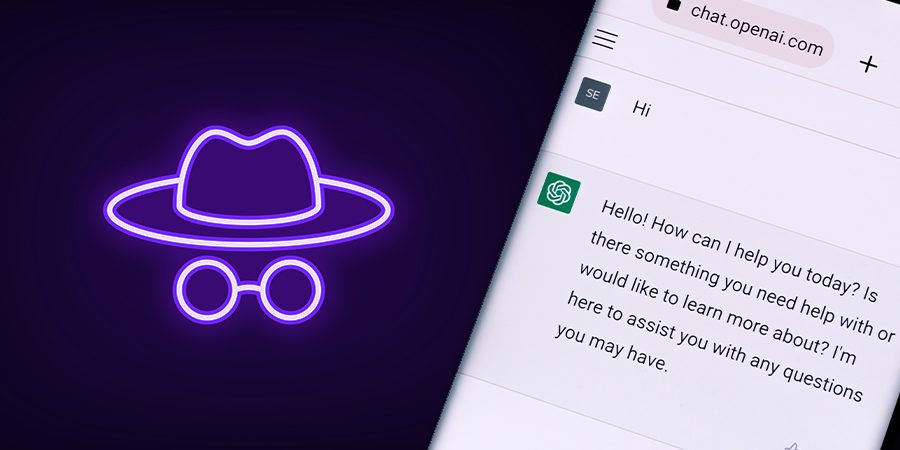In this article, we’ll explore OpenAI’s latest move to prioritize user privacy by launching an incognito mode for ChatGPT, disabling chat history and training data usage.
Key Takeaways:
- OpenAI introduces incognito mode for ChatGPT, enhancing user privacy.
- Users can now disable chat history and training data usage in settings.
- ChatGPT Business subscription with additional data controls is in the pipeline.
- The decision to prioritize user privacy comes after months of internal discussions.
- OpenAI assures that it is compliant with European privacy law and is working to satisfy regulators.
OpenAI’s Commitment to User Privacy
OpenAI has been working diligently to ensure that user privacy remains a top priority.
Recognizing the importance of safeguarding personal data, the company has introduced incognito mode for ChatGPT.
This initiative demonstrates OpenAI’s commitment to giving users greater control over their data while maintaining the quality and efficiency of its AI tool.
Disabling Chat History & Training Data Usage
With the introduction of incognito mode, users can now disable chat history and training data usage in their ChatGPT settings.
This feature allows users to prevent OpenAI from retaining conversation history and using their data to improve the AI model.
To access this setting, users need to log in to ChatGPT and click on their name in the bottom left corner.
From there, they can select “Settings” and then click on “Data Controls” to reveal the available options.
By turning off the tracking and history settings, users can ensure that their data remains private.
However, it’s important to note that there is a small catch to this enhanced privacy feature.
OpenAI will still store users’ chat data for 30 days to monitor for any misuse of the system. The good news is that this data will not be used to train AI models further.
Upcoming ChatGPT Business Subscription
In addition to the incognito mode for individual users, OpenAI is also planning to launch a ChatGPT Business subscription.
This premium offering will provide businesses with additional data controls, ensuring that corporate users have even more options when it comes to safeguarding their data.
The ChatGPT Business subscription will not use conversations for AI model training by default.
This added layer of privacy protection is expected to appeal to organizations looking for a powerful AI tool that respects their data privacy requirements.
Microsoft Corp, which has invested in OpenAI, already offers ChatGPT to businesses.
OpenAI’s chief technology officer, Mira Murati, believes that the upcoming ChatGPT Business subscription will cater to the needs of Microsoft’s existing cloud customers.
Addressing Regulatory Concerns and Compliance
The introduction of incognito mode and the upcoming ChatGPT Business subscription come at a crucial time.
OpenAI has faced increased scrutiny from regulators over its management of user data.
Italy, for instance, banned ChatGPT due to potential privacy violations, while France and Spain began investigating the service.
However, Mira Murati asserts that the decision to prioritize user privacy was not a direct response to the ChatGPT ban in Italy.
Rather, it stemmed from months of internal discussions at OpenAI, focused on putting users in control of their data collection.
Murati also claims that OpenAI is compliant with European privacy laws and is actively working with regulators to ensure continued compliance.
She highlights the company’s ongoing efforts to develop AI models that prioritize user privacy while still providing a high level of service and functionality.
User information has played a vital role in helping OpenAI refine its software, reduce political bias, and address other issues.
Despite the challenges that come with balancing user privacy and AI improvement, the company remains committed to finding the right balance.
Conclusion
The introduction of ChatGPT’s incognito mode signifies OpenAI’s dedication to user privacy and control over personal data.
By offering users the option to disable chat history and training data usage, and with the upcoming ChatGPT Business subscription, OpenAI demonstrates its commitment to putting users in the driver’s seat when it comes to data collection.
As the company moves forward, we can anticipate continued efforts from OpenAI to prioritize user privacy while providing powerful AI tools for users around the world.
By addressing regulatory concerns and compliance, OpenAI aims to create an environment of trust and transparency.
As the AI landscape evolves, OpenAI’s dedication to balancing innovation and privacy will play a crucial role in shaping the future of artificial intelligence and its impact on our daily lives.
 Sections of this topic
Sections of this topic
















